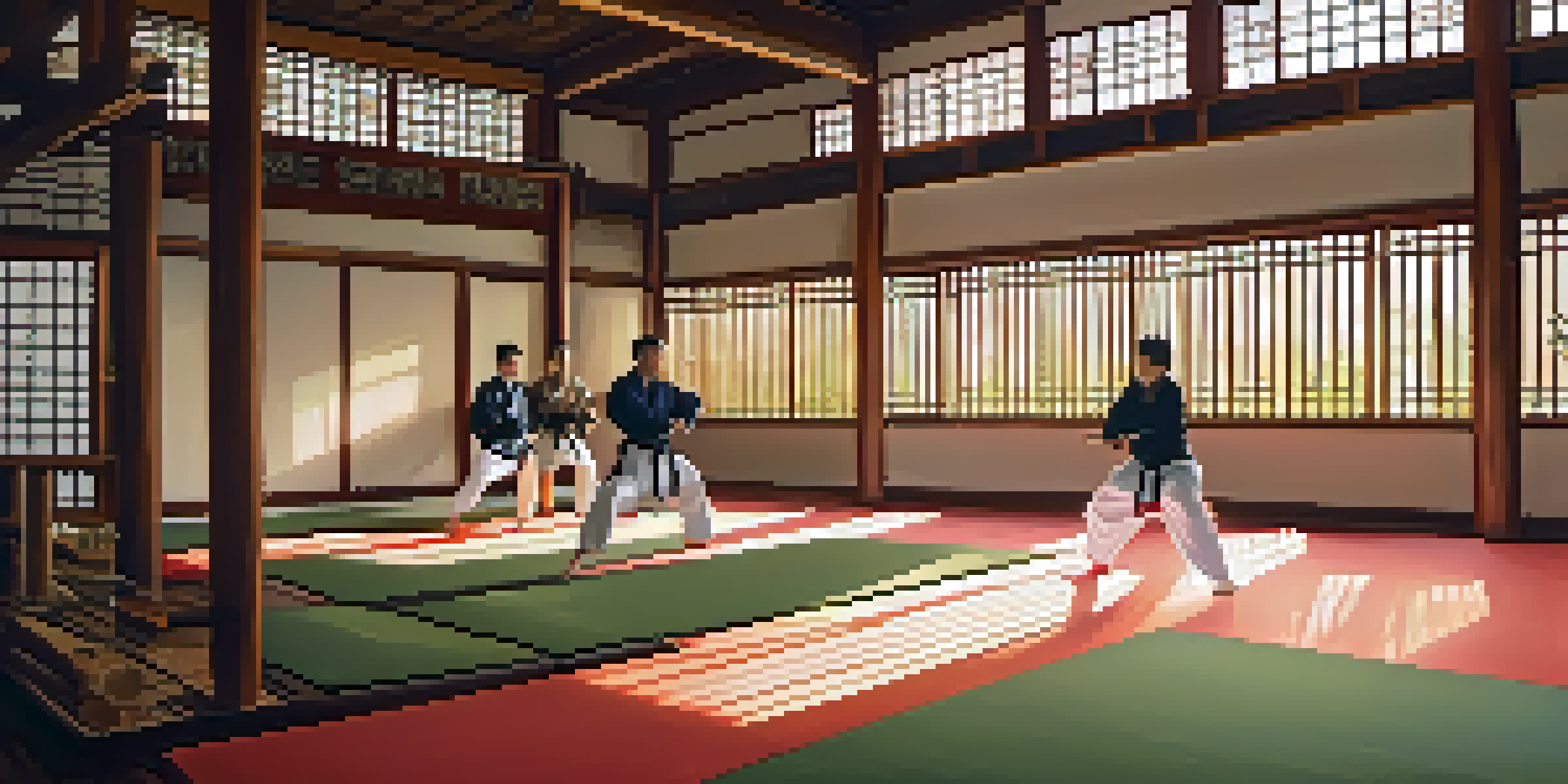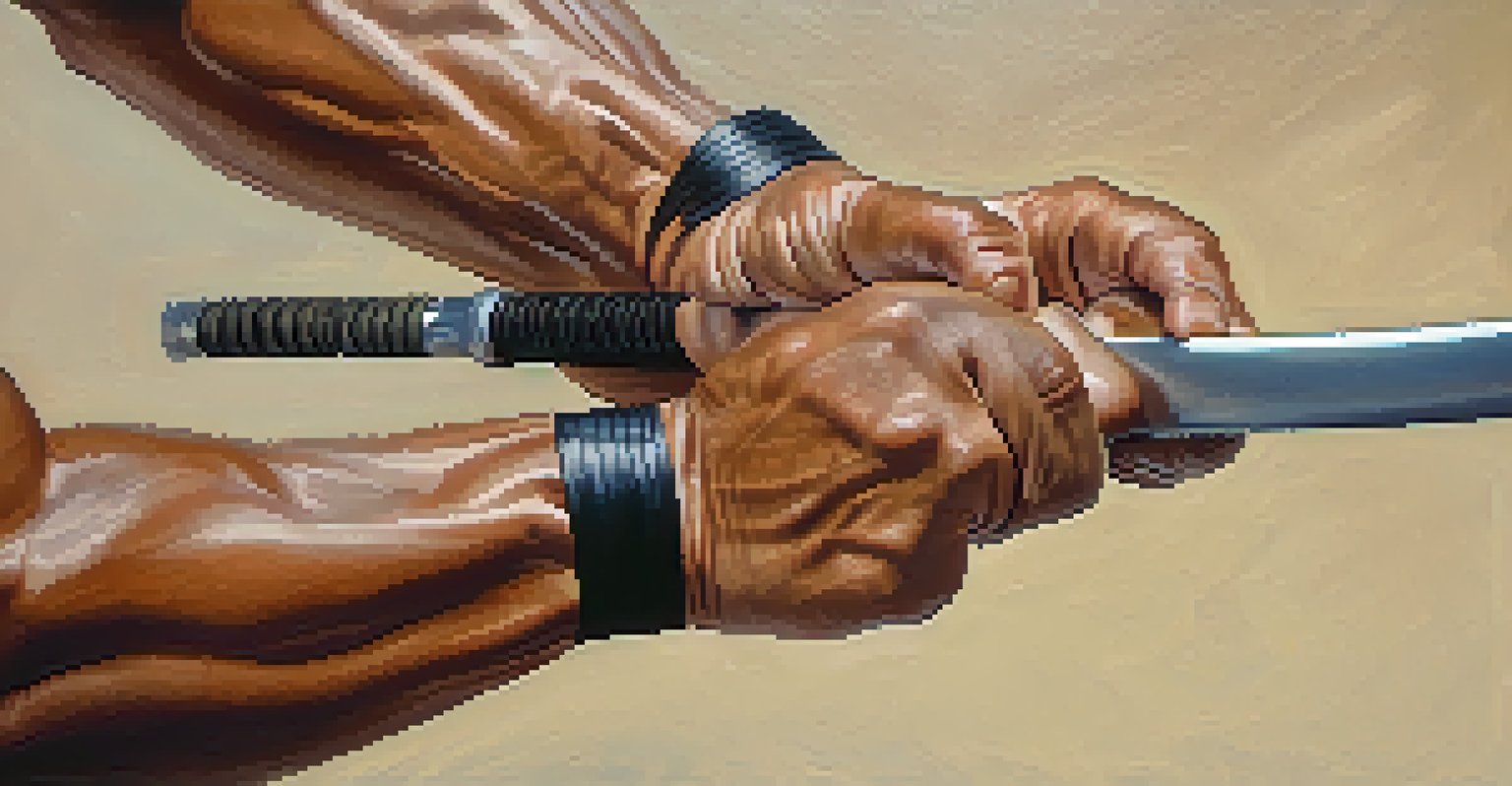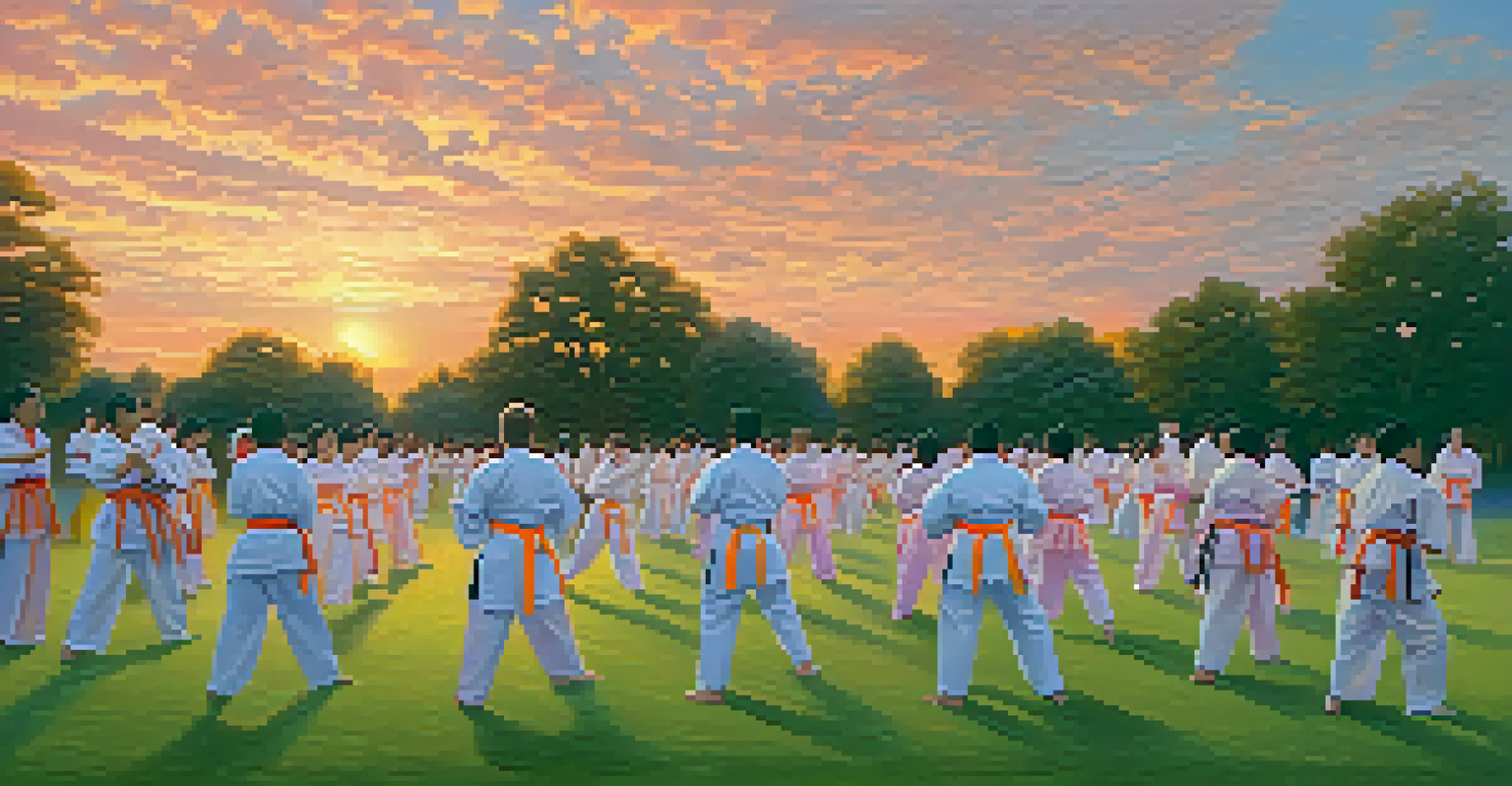Emotional Regulation Skills Developed Through Martial Arts

Understanding Emotional Regulation in Daily Life
Emotional regulation refers to our ability to manage and respond to our emotions in a healthy way. It plays a crucial role in how we interact with others and cope with challenges. When we can effectively regulate our emotions, we experience less stress and better relationships, leading to an overall improvement in our quality of life.
Emotions can’t be ignored, no matter how unpleasant. You must learn to deal with them.
Imagine facing a stressful situation, like a tough day at work. If you can maintain your composure and not let your frustration boil over, you're utilizing emotional regulation skills. These skills allow us to pause, reflect, and respond thoughtfully rather than react impulsively.
Incorporating emotional regulation into our lives can lead to more productive and harmonious interactions. This is where martial arts can come in, offering a unique environment to cultivate these essential skills.
Martial Arts: A Pathway to Emotional Mastery
Martial arts is not just about physical techniques; it's also a mental discipline that encourages emotional growth. Practitioners learn to face their fears and anxieties head-on, creating a safe space to explore and express their emotions. This journey fosters self-awareness and helps individuals understand their emotional triggers.

For example, during sparring sessions, martial artists often confront the fear of failure or being overwhelmed by an opponent. The process of navigating these emotions teaches them to stay calm under pressure and maintain focus amidst chaos. This experience translates to real-life situations where emotional composure is vital.
Emotional Regulation Basics
Emotional regulation is essential for managing stress and improving relationships.
By practicing martial arts, individuals can develop a toolkit of emotional regulation strategies. These include deep breathing, mindfulness, and visualization techniques, which can be applied beyond the dojo into everyday life.
Building Resilience Through Martial Arts Training
Resilience is the ability to bounce back from setbacks, and martial arts training inherently builds this trait. Each challenge faced during training, whether physical or mental, teaches practitioners how to recover and adapt. This process of overcoming obstacles strengthens emotional resilience.
The greatest weapon against stress is our ability to choose one thought over another.
Consider a martial artist who faces repeated failures in mastering a new technique. Instead of giving up, they learn to view these failures as opportunities for growth. This mindset shift is crucial for emotional regulation, as it encourages a positive perspective on challenges.
As practitioners realize that setbacks are part of the journey, they become more equipped to handle life's larger emotional hurdles. This resilience not only boosts confidence but also enhances overall emotional well-being.
Mindfulness: The Heart of Martial Arts Practice
Mindfulness is a key component of martial arts training, emphasizing being present and fully engaged in the moment. This practice allows individuals to observe their thoughts and feelings without judgment, a vital skill in emotional regulation. By cultivating mindfulness, martial artists learn to manage their emotional responses more effectively.
During training, practitioners often focus on their breath and movements, which helps ground them in the present. This focus reduces anxiety and distractions, enabling them to respond thoughtfully rather than react impulsively. It's like hitting the reset button on their emotional state.
Martial Arts Builds Resilience
Training in martial arts fosters resilience by teaching individuals to embrace challenges and learn from failures.
In daily life, these mindfulness techniques can help manage stress and enhance emotional awareness. The ability to pause and reflect before reacting can lead to healthier interactions and improved emotional health.
The Role of Discipline in Emotional Regulation
Discipline is a fundamental principle in martial arts that extends beyond physical training. The commitment to practice regularly fosters a sense of responsibility and control over one's actions and emotions. This sense of discipline can translate to improved emotional regulation skills in various aspects of life.
For instance, a martial artist learns to adhere to a training regimen, which involves setting goals and working toward them diligently. This dedication teaches them how to handle frustration and disappointment when progress is slow, reinforcing their ability to manage emotions effectively.
As practitioners develop discipline in martial arts, they also cultivate patience and perseverance. These qualities are essential for emotional regulation, helping individuals remain calm and composed in challenging situations.
Community Support in Martial Arts Training
Martial arts often foster a strong sense of community, creating an environment where individuals can support each other. This sense of belonging helps practitioners feel more comfortable expressing their emotions and seeking help when needed. The camaraderie built in training can be a vital support system for emotional regulation.
For example, during group classes, students often share their struggles and triumphs, creating a safe space for emotional expression. This shared experience allows individuals to realize they are not alone in their challenges, promoting empathy and understanding.
Mindfulness Enhances Focus
Mindfulness practices in martial arts help individuals stay present, improving emotional responses and reducing anxiety.
Having a supportive community encourages individuals to develop their emotional skills collectively. This collaborative environment can enhance motivation and resilience, making the journey toward emotional regulation more enjoyable and effective.
Long-Term Benefits of Martial Arts on Emotional Well-Being
The skills acquired through martial arts training have long-lasting impacts on emotional well-being. As practitioners develop emotional regulation skills, they often experience improvements in mental health, including reduced anxiety and enhanced self-esteem. These benefits extend far beyond the dojo, influencing various aspects of their lives.
For many, martial arts becomes a lifelong practice that continually reinforces emotional skills. The discipline, mindfulness, and resilience cultivated through training serve as a foundation for navigating life's ups and downs. It's like having a personal toolkit for emotional management.

Ultimately, the journey of emotional regulation through martial arts enriches lives by promoting mental clarity and emotional stability. It empowers individuals to face challenges head-on, fostering a sense of confidence and peace.